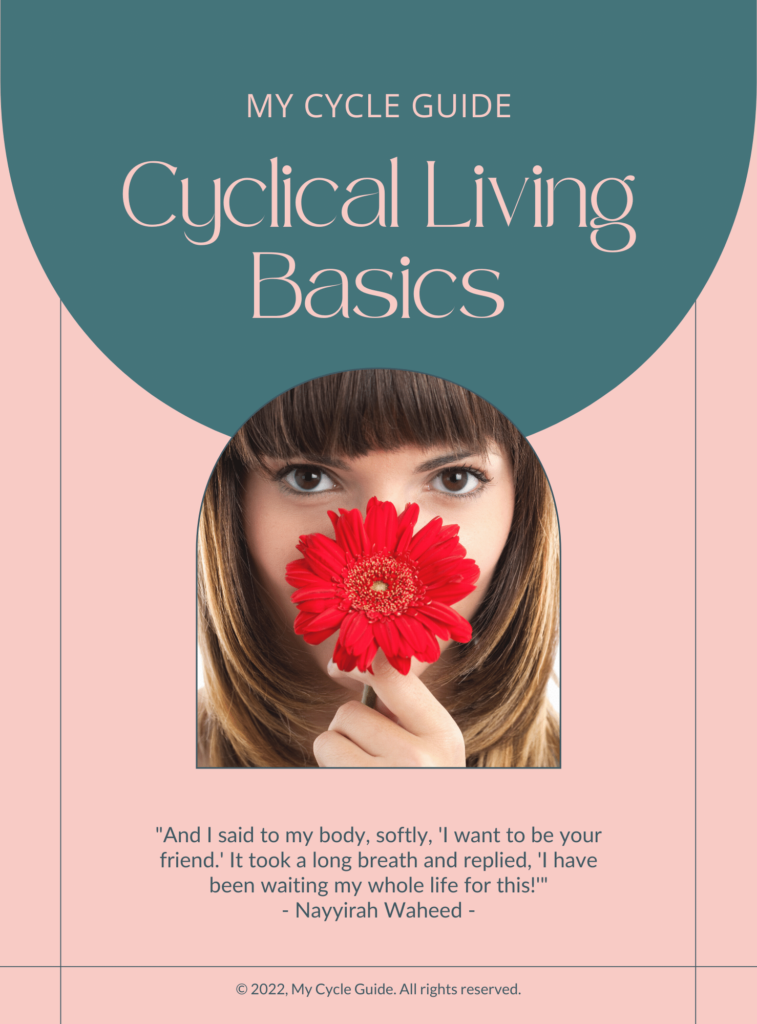Understanding Anxiety – Anxiety, a common emotion, is characterized by feelings of tension, worried thoughts, and physical changes like increased blood pressure. It’s normal to experience anxiety in certain situations, but when these feelings persist and become overwhelming, it can escalate into an anxiety disorder.
Why is Understanding Anxiety in Cyclical Living Important?
For those living in tune with their menstrual cycles, understanding the relationship between anxiety and cyclical hormonal changes is key. Recognizing patterns can help anticipate periods of heightened anxiety, providing the opportunity to implement coping strategies and maintain mental wellbeing.
How Does Anxiety Relate to the Menstrual Cycle?
Anxiety can fluctuate throughout the menstrual cycle. Hormonal changes, particularly drops in estrogen and progesterone levels, can influence neurotransmitters in the brain such as serotonin, potentially leading to increased anxiety levels.
Different Aspects of Anxiety in Cyclical Living
Not everyone experiences cyclical anxiety the same way. Some individuals may notice an increase in anxiety during the luteal phase (post-ovulation), while others may experience heightened anxiety during menstruation. A severe form of premenstrual syndrome, Premenstrual Dysphoric Disorder (PMDD), includes symptoms of severe anxiety.
How Can You Manage Cyclical Anxiety?
Managing anxiety in relation to your cycle can involve several strategies:
- Cycle tracking: By tracking your cycle and noting your mood, you can identify patterns and anticipate periods of increased anxiety.
- Lifestyle modifications: A balanced diet, regular physical activity, and adequate sleep can all help regulate mood and reduce anxiety.
- Stress management techniques: Practices like yoga, meditation, and deep breathing exercises can help manage anxiety.
- Seeking professional help: If anxiety is significantly impacting your quality of life, consider seeking help from a healthcare provider or mental health professional.
The Emotional Impact of Anxiety
Unmanaged anxiety can significantly impact emotional wellbeing, potentially leading to increased stress, a decrease in motivation, feelings of overwhelm, and social withdrawal. However, with understanding and effective management of cyclical changes, individuals can feel more empowered and in control of their emotional health.
Frequently Asked Questions about Anxiety and Cyclical Living
- How does the menstrual cycle affect anxiety levels? Hormonal fluctuations throughout the menstrual cycle can influence brain chemicals, potentially leading to heightened anxiety at specific times in the cycle.
- What is PMDD and how is it related to anxiety? PMDD is a severe form of PMS that includes symptoms of severe anxiety, mood swings, and depression.
- How can I manage cyclical anxiety? Strategies include lifestyle modifications like diet and exercise, stress management techniques, tracking menstrual cycles to identify patterns, and seeking help from healthcare or mental health professionals.
To understand more about your menstrual cycle, how to track it, and manage related issues, refer to our Free Workbook – Guide to Tracking Your Menstrual Cycle and accompanying Cyclical Living Basics eBook.
